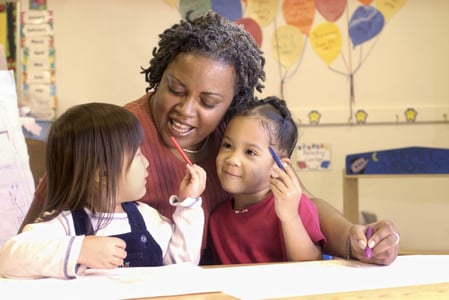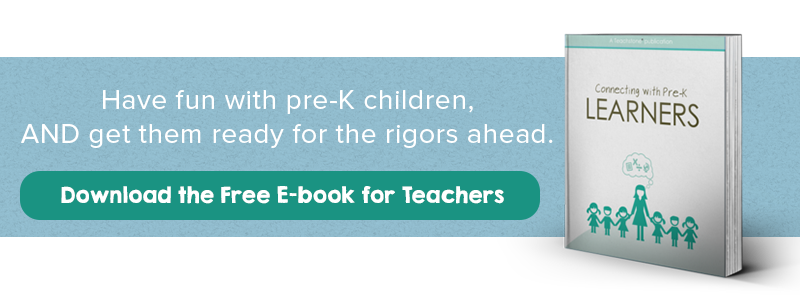
Early educators are prepared for transitions in a child’s life. Whether it’s introducing them to solid foods, teaching them how to paint within the lines, or even toilet training, it’s important to help children ease into new responsibilities by instilling confidence in them. One of the more significant transitions is from a child care setting to kindergarten. As children get closer to five years of age, it’s vital to prepare them for a smooth transition into kindergarten, but depending on where they are coming from— a family child care, their own homes, or a center-based setting—their transition might be more noticeable and/or challenging.
What is most important to consider when applying transitional tips to your daily work as early educators is the relationship you have with the children and their families. That way, you and the parents can work together to make children feel at as their environment changes and as they no longer see familiar faces.
Here are some techniques when working with families who are soon sending their children to kindergarten:
With children:
Establish a routine
Set a daily routine that a child can grow accustomed to—especially since children will follow a more rigorous schedule in kindergarten. Their schedule doesn’t have to be as rigid as when they attend kindergarten and eventually go to school, but just enough to establish a transition.
You can start by incorporating parts of their kindergarten routines. For instance, you may want to introduce more group activities throughout the day to get the child accustomed to more group work while still focusing on individualized attention; an important balance in educational environments.
Encourage healthy social-emotional development
Children need to develop self-regulatory skills and learn how to control their emotions in a healthy manner to avoid conflict with others in school. As early educators we must teach young children how to acknowledge their emotions and control their behavior. To do this successfully, we must intentionally nurture them and help them stay in-tune with their emotions. Once children learn this, over time, they will get along more easily with others in new environments. And remember, self-regulation is an important sign of school readiness!
Maintain relationships
Early educators play an important part in helping children sustain relationships with adults and other children. You can help children maintain positive relationships with others by putting rules in place so that they will understand and respect not only their peers, but also the setting in which they learn. This action will help children with their social-emotional development, and it will help them build trust as they begin to transition out of their familiar classrooms.
With parents:
Maintain communication
Keep an open communication channel with parents to help them learn about the kindergarten environment their children will attend. Learn about the schedule, the activities and the classroom, and help parents create a familiarity in the child’s daily routine that will easily translate into the new program.
Offer emotional support
Encourage parents to start talking about this transition into kindergarten with their child and suggest that they visit the program, so their child can meet and get acquainted with their future teacher. Allowing children and their parents to visit the new classroom together will help dissipate feelings of separation anxiety. Encourage the child to talk about his or her feelings with his or her parents, and help facilitate these conversations if the parents ask for help.
Early educators can ease children’s transition into kindergarten by teaching them to have a greater frustration tolerance, better social skills, and more positive approaches to learning. By being involved in the child's life and asking questions about kindergarten, you help them feel more at ease once the transition takes place.
 Dr. Valora Washington is the CEO of the Council for Professional Recognition, which oversees the nationally acclaimed Child Development Associate (CDA®) Credential program.
Dr. Valora Washington is the CEO of the Council for Professional Recognition, which oversees the nationally acclaimed Child Development Associate (CDA®) Credential program.

